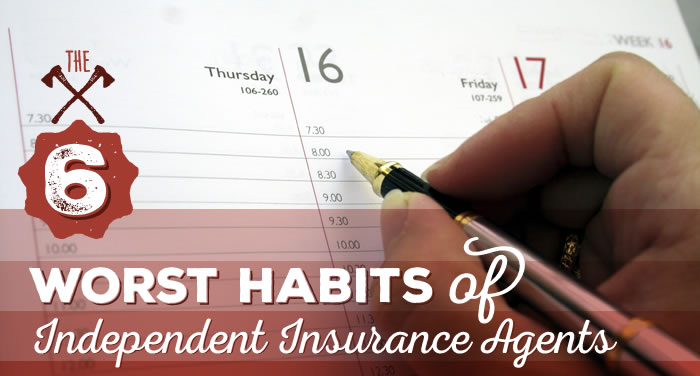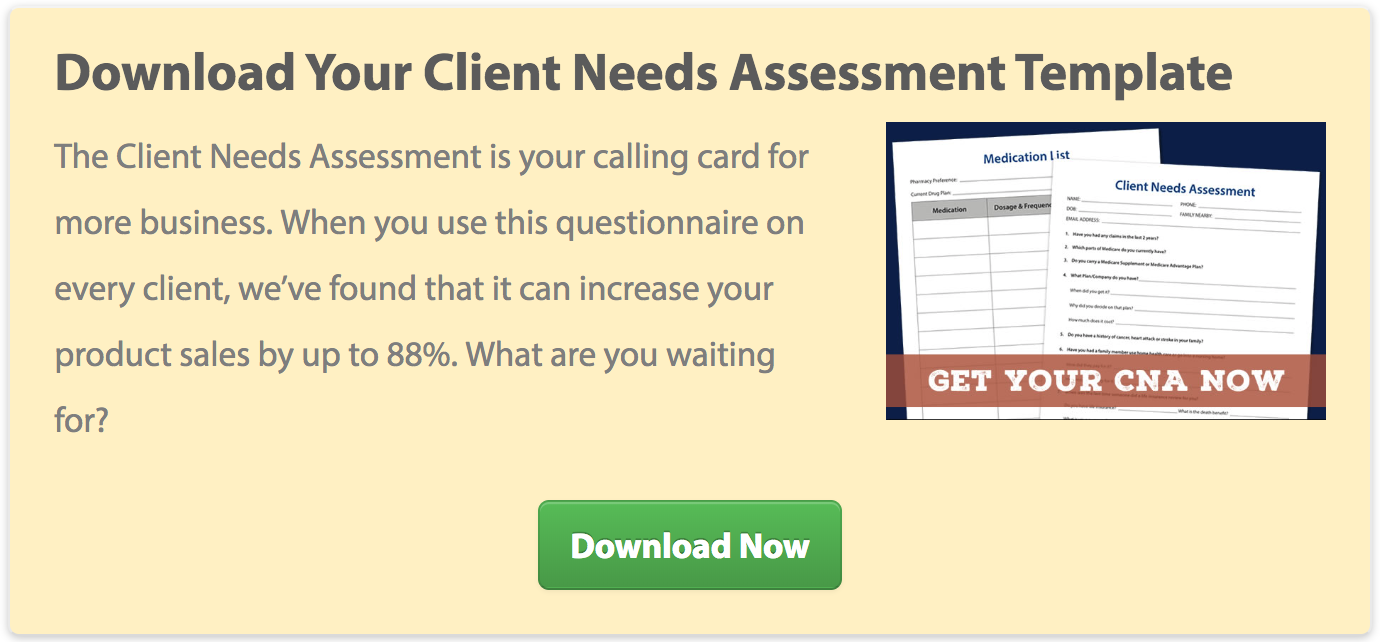Just like swinging too hard, swinging too steep, or angling the clubface wrong can ruin your golf game, agents can get in the swing of bad habits that can ruin their sales.
As we kick off the start of the Masters Golf Tournament, we thought it might be fitting to talk to Michael Sams, insurance agent and mentor, about some of the worst habits that can be tough for all independent insurance agents to kick.
#6 Not taking control of your own schedule
There is no one telling you that you have to be here at 8 o’clock and leave at 5. That’s one of the benefits of being an independent agent — you get to control your own schedule.
While that's one of the best things about the job, it’s also one of the worst.
A lot of us have a really hard time with that freedom. Everybody needs some sort of a structure and accountability.
It can be helpful to set up a call with a few other independent agents so that you can discuss your progress and have someone keeping you accountable. You can also throw some dilemmas or strong points past each other.
Having a system that you stick to is so important.
It’s just like working out. I go to the gym on Monday, Wednesday, and Friday at 1 o’clock. I know that my guy is there waiting on me, and I just go.
I don’t like to do it, but I know I have to do it.
You have to ask yourself, “What’s the approach I’m going to stick to to keep good habits?”
#5 Skipping the warm-up

One of the agents I worked with started out of the gate doing absolutely fantastic. She was doing better than anyone we’d ever seen before. Then, she had a slump.
She couldn’t figure out what she was doing wrong. She didn’t think she had changed anything, but she just wasn’t making sales like she had before. So, I asked her to take me through her sales process.
She started to go through it, and before I could even say anything, she knew right away what was going on. Since she had become more confident in what she was doing, she felt like she could breeze past the warm-up and rush the appointment.
The reason why she had success early on was because she wasn’t as comfortable with her product knowledge and the sales stuff. She felt like she had to really establish a relationship with these prospects to make up for it.
She was rushing it, and her clients didn’t feel like they knew her and trusted her enough to sign up with her.
It’s so important to have that initial warmup time before you delve into insurance. Whether it be the pictures on the wall, their pets, or whatever is important to them, it’s the agent's job to get the client to open up.
Do not rush the warm up. Even if you know the client already, don’t skip that important time. You don’t want to walk in there with one agenda of selling more insurance.
Instead, ask questions, reconnect, and then delve into the insurance review and product pitches.
My success rate is so much better when I spend around 30 minutes getting the clients to open up through a warmup.
Don’t skip the small talk.
#4 Not seeing your clients at least once a year

For those of you that have assistants, have them call up your clients 30-45 days before their anniversary renewal date. Having an assistant is obviously first preference. It will save you a lot of time, and it will allow you to focus on seeing your clients rather than doing the behind-the-scenes work.
If you don’t have an assistant, you need to get on the phone with your clients to set up appointments. You can say something like this:
“Hey Mrs. Jones, this is Michael, and I wanted to give you a call about your upcoming renewal. I’d like to talk to you about the changes that can come on your anniversary date, and I’d like to make sure you’re in the best place possible.”
We all get guilty of not serving our clients to the best of our ability. Especially when we start to near retirement, we fall into retirement mode. It doesn’t matter what the circumstance is — you have to get in front of your clients via an annual policy review.
Without that, there’s no loyalty and no relationship, and now you have no edge over any other agent that comes and knocks on their door to steal your business.
#3 Only seeing your clients during annual open enrollment period

We’re under an extreme time crunch from October 15 through December 7.
If the only time I see my clients is during that time, I’m not doing a very good job for that client. The appointment is going to be rushed, and I'm not going to go into as much detail as I normally would.
All the sudden, time’s up and you have to go. It’s important to see your clients once a year, but it shouldn’t just be during this hectic time.
#2 Not asking for referrals from every appointment

I am 100% guilty of this. I am so afraid of coming off greedy. I don’t want my clients to think I’m not grateful for their business by asking for referrals.
It’s really a comfort thing, but if I feel like I’ve really hit it off with my client, I’ve done annual reviews with them, and there’s a real trust factor, I’ll ask for that referral.
You have to inject your own personality into the way you ask, but I usually go for something corny to break the ice and keep it light-hearted:
“Hey, if you know anybody else I can help out, tell them you know the nicest guy on this side of the Mississippi River.”
That’s me and that’s what fits my personality, but I’m also guilty of not saying it every time.
This is a hump that we all will struggle to get over, but when you do ask and you ask consistently, you will see an upswing in the number of appointments you have as well as your sales.
#1 Only taking care of the Med Supp

If you’re only taking care of a Med Supp and maybe a Part D plan, you’re not reaching your full potential, and you’re doing your clients a disservice.
When we do a client needs assessment, the whole point is to try to inform the client that there may be uncovered needs.
A lot of clients don't know that there’s a need for a cancer benefit. They don’t know that two-thirds of cancer-related costs are non-medical. Therefore, the client will be responsible for most of those charges, because Medicare won't cover non-medical expenses.
The CNA will uncover the strong and weak points. You’ll end up saying something like this:
“Hey, Mrs. Jones, you did a great job taking care of your long-term care! You’ve also done a great job taking care of your Medicare Supplement. BUT your assessment uncovers the fact that you have money sitting in the bank earning a half of a percent interest rate, and you’re letting it continue to roll over into CDs. You could be earning 3.15% guaranteed with zero risk.”
The CNA is going to be the roadmap for an agent to figure out what needs to happen to make sure the client is fully taken care of.
It’s easy to do a Medicare Supplement and nothing else.
I can get passionate about this topic because I have seen an extreme difference in these agents.
One of our agents has been in the business for over 30 years and has been a top producer for the last 10 years. When she started using a CNA, she saw an 88% increase in her production. She was finally able to uncover the needs that her existing clients didn’t have covered.
That is significant.
If you just start knocking out these bad habits, you’ll notice a domino effect starting to take place — you’ll build loyalty and relationships, you’ll start getting more referrals, and you’ll start making more money.



![The Simple Question That Drove $9M+ in Annuity Sales [Case Study]](https://blog.newhorizonsmktg.com/hs-fs/hubfs/NH-The-Simple-Question-That-Drove-9M-in-Annuity-Sales-Case%20Study%20(1).webp?width=220&height=119&name=NH-The-Simple-Question-That-Drove-9M-in-Annuity-Sales-Case%20Study%20(1).webp)


